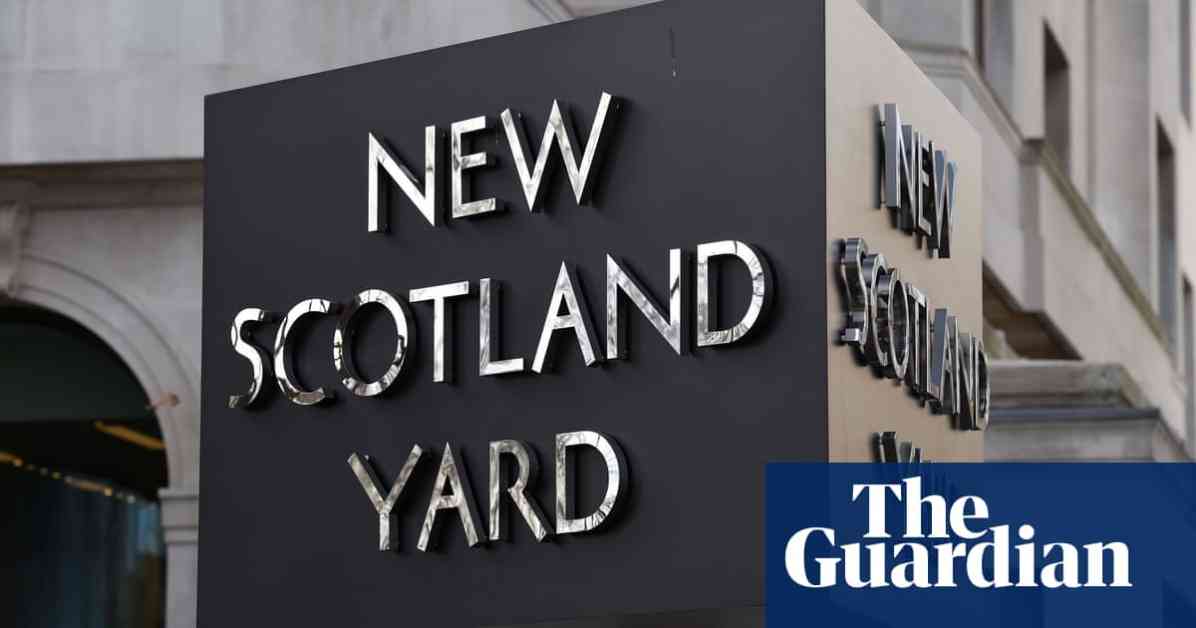Teenagers Charged with Terrorist Offences by Metropolitan Police
In a shocking turn of events, two teenagers have been charged with terrorism offences by the Metropolitan Police in relation to suspected extreme rightwing activity. The suspects, identified as Rex William Henry Clark, 18, and Sofija Vinogradova, 19, are facing serious charges of preparation of terrorist acts. Vinogradova, who was also arrested on suspicion of possessing a firearm, is facing additional charges of collecting information likely to be useful to a person committing or preparing an act of terrorism. The two teenagers were set to appear at Westminster magistrates court to face these charges.
The investigation into Clark and Vinogradova, who were arrested in Cheshunt, Hertfordshire, has sent shockwaves through the community. Commander Dominic Murphy, Head of the Met’s counter-terrorism command, emphasized the gravity of the charges, urging the public not to speculate further about the case and to allow the criminal justice process to unfold unimpeded. While specific details about the investigation are not being disclosed at this time, Murphy reassured the public that there is no immediate wider threat related to this case. However, he emphasized that the investigation is ongoing.
On August 4, officers from the counter-terrorism command apprehended Vinogradova on suspicion of possessing a firearm and collecting information likely to be of use to a terrorist. Following a search of her residence, she was taken into custody at a London police station before being released on bail pending further inquiries. However, on August 10, she was once again arrested at an address in Cheshunt, where Clark was also taken into custody. Subsequent searches were conducted at the Cheshunt address and another location in Ilford. Detectives secured a warrant for further detention for both individuals, underscoring the seriousness of the situation.
The Rise of Far-Right Extremism Among Young People
The recent arrests of Rex William Henry Clark and Sofija Vinogradova shed light on a disturbing trend – the rise of far-right extremism among young people. While terrorism has long been associated with specific groups or ideologies, the involvement of teenagers in such activities is a cause for concern. The allure of extremist ideologies, fueled by online propaganda and social media, has drawn in impressionable individuals who may be vulnerable to radicalization.
It is essential to understand the factors that contribute to the radicalization of young people and how they become involved in extremist activities. One key aspect is the influence of online platforms, where individuals can easily access extremist content and connect with like-minded individuals. The anonymity provided by the internet allows for the dissemination of extremist ideologies without fear of repercussions, making it easier for young people to be exposed to harmful beliefs.
Moreover, disenfranchisement and feelings of alienation can also play a role in pushing young people towards extremist ideologies. The sense of belonging and purpose offered by extremist groups can be appealing to individuals who feel marginalized or disconnected from mainstream society. By providing a sense of identity and community, these groups can exploit vulnerable individuals and recruit them into their ranks.
The Role of Law Enforcement in Combating Extremism
The arrests of Clark and Vinogradova highlight the crucial role of law enforcement in combating extremism and preventing terrorist activities. The Metropolitan Police’s counter-terrorism command played a pivotal role in apprehending the suspects and conducting a thorough investigation into their activities. By taking swift and decisive action, law enforcement agencies can disrupt potential threats and protect the public from harm.
It is essential for law enforcement to remain vigilant and proactive in monitoring extremist activities and identifying individuals who may pose a threat to national security. Through intelligence-gathering and cooperation with other agencies, law enforcement can track and apprehend individuals involved in extremist activities before they can carry out their plans. By staying ahead of the curve, law enforcement can prevent acts of terrorism and safeguard the community.
In addition to law enforcement efforts, it is crucial for communities to play a role in preventing radicalization and extremism among young people. By promoting tolerance, understanding, and inclusivity, communities can create an environment that is resistant to extremist ideologies. Education and awareness programs can help young people recognize the signs of radicalization and empower them to resist the influence of extremist groups.
Conclusion
The case of Rex William Henry Clark and Sofija Vinogradova serves as a stark reminder of the threat posed by extremism and the need for continued vigilance in combating terrorism. As the investigation into their activities continues, it is essential for law enforcement agencies, communities, and individuals to work together to prevent radicalization and extremism among young people. By addressing the root causes of extremism and promoting unity and understanding, we can build a society that is resilient to the influence of extremist ideologies. Through collective action and a commitment to upholding our values of peace and tolerance, we can ensure the safety and security of our communities.












